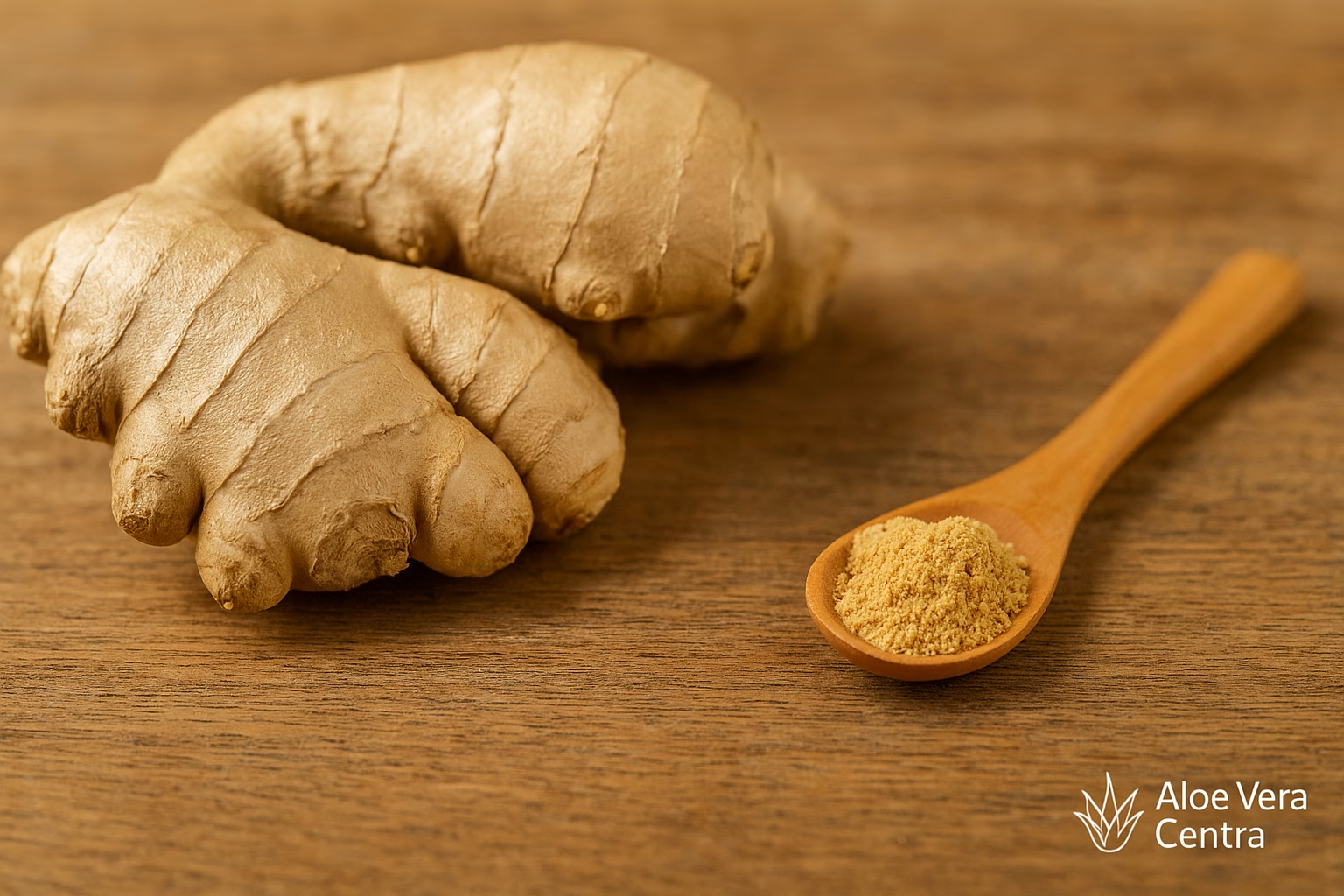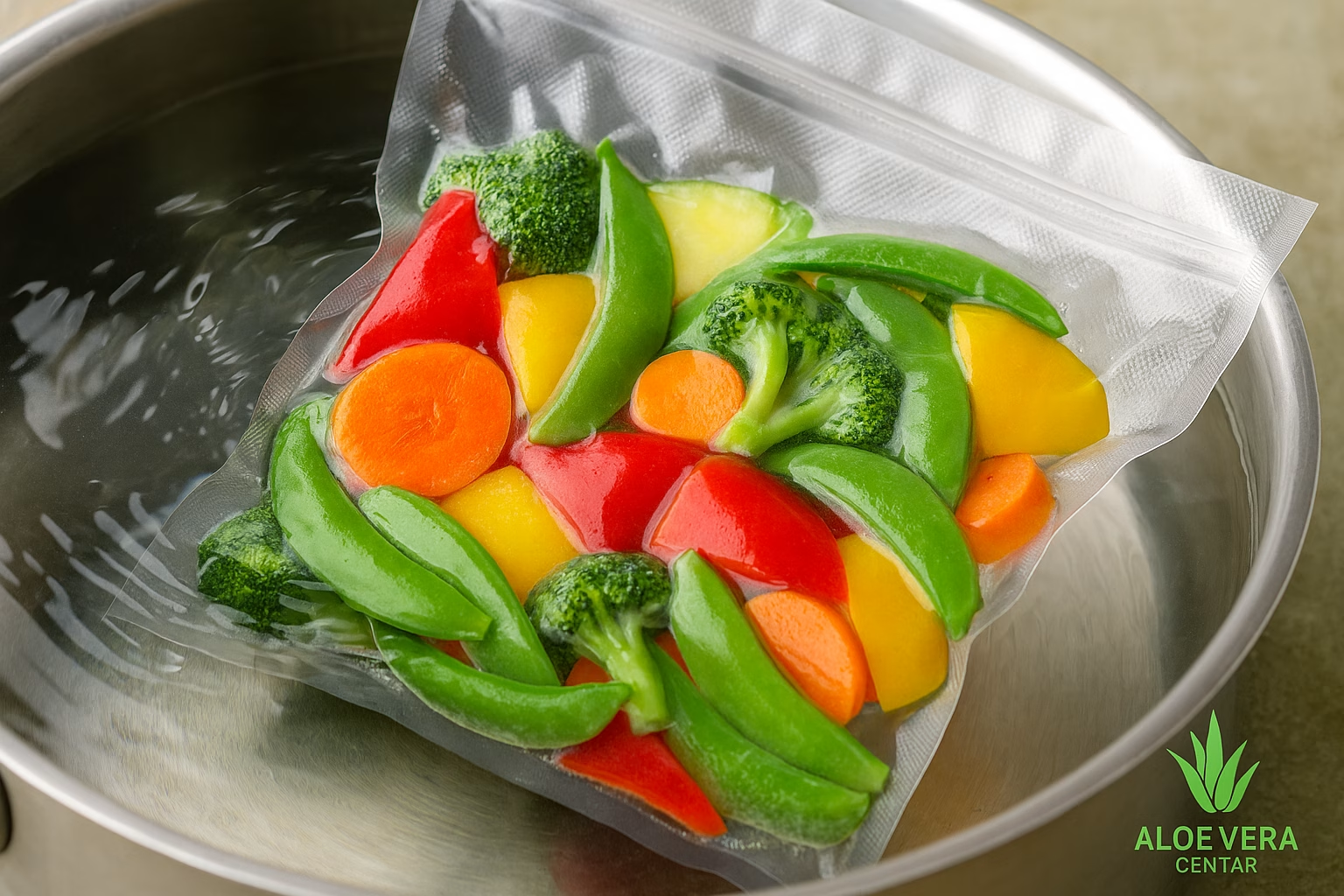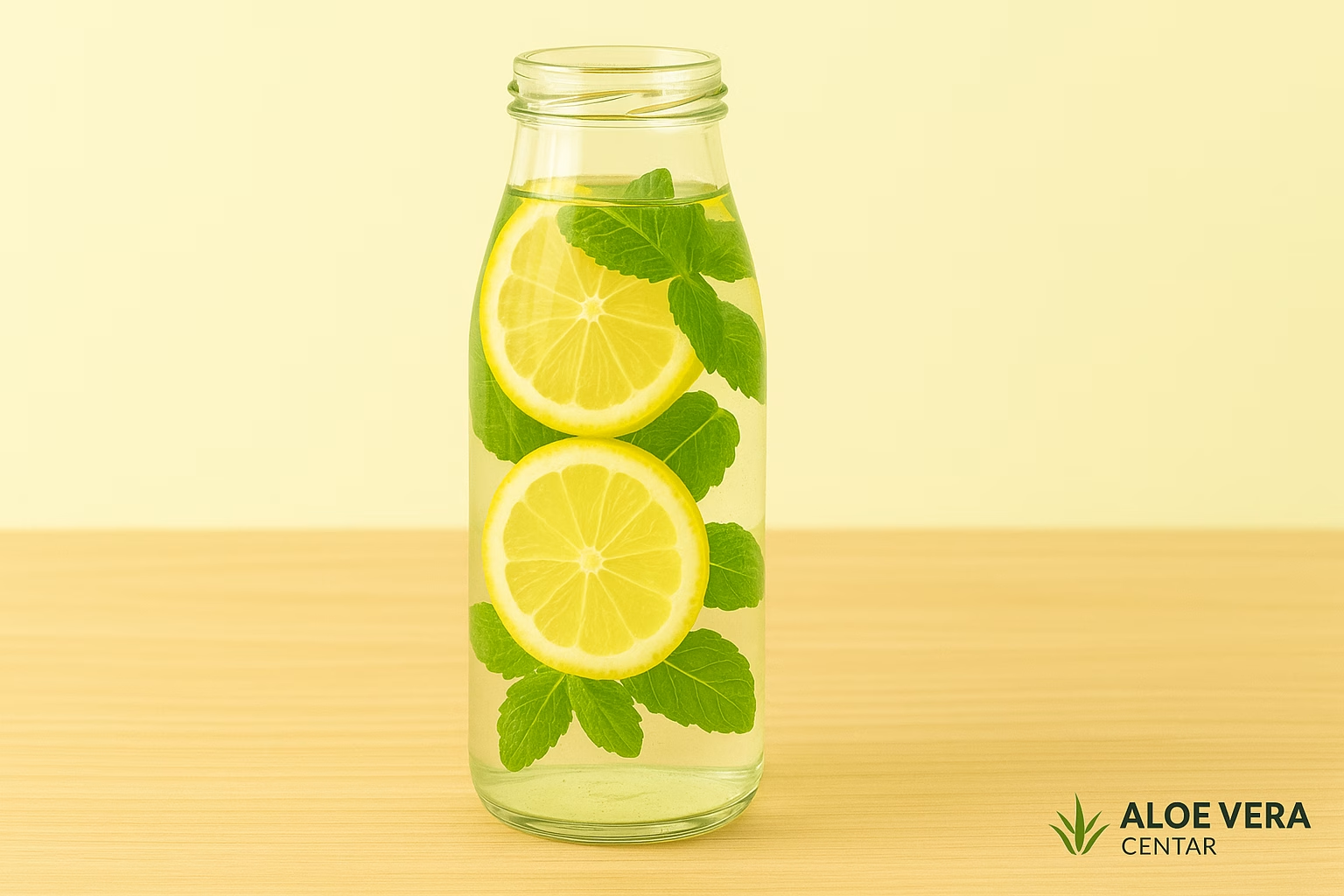
Diet plan for healthy digestion: steps to a flat stomach
Diet plan for healthy digestion: steps to a flat stomach
Healthy digestion is the key to overall health, energy, and well-being. Although we often associate it with symptoms like bloating, constipation, or stomach discomfort, there are actually many factors behind balanced digestion. From food choices and eating habits to stress levels and sleep quality – everything affects our digestion. When the digestive system is in shape, the body uses nutrients efficiently, and excess is excreted without problems. The result? More energy, a balanced immune system, and the often desirable “byproduct” – a flat stomach.
In this article, you will learn how to create a healthy digestive diet plan and what steps to take to get to a flat stomach step by step. We will also look at the role of supplements like aloe vera and other natural products that can support the functioning of the intestines and facilitate the digestive processes. Whether you are just starting to think about changing your lifestyle or are already experienced in balanced nutrition, this guide provides concrete guidelines and advice that can be adapted to almost any daily routine.
Why is healthy digestion the foundation of overall health?
The digestive system is often called our body’s “second brain,” and for good reason. A huge number of nerve cells and neurotransmitters are located in the gut, meaning that the state of our digestive tract directly affects our mood, energy levels, and even mental clarity. Also, about 70% of our immune system is located in the gut, making healthy digestion a key factor in our body’s resistance to disease.
If digestion is not working “at full capacity”, this can manifest itself in several ways: frequent bloating, increased fatigue, variations in body weight or a constant feeling of “heaviness” after meals. Also, when the intestines are out of balance, it is easy to develop a vitamin and mineral deficiency even when we eat seemingly high-quality food, because the body does not absorb nutrients efficiently enough. Simply put, healthy digestion is a prerequisite for taking advantage of all the benefits of the food we eat.
What is the connection between healthy digestion and a flat stomach?
A flat stomach is often the result of low body fat levels, but also excellent gut function . Bloating or a “bloated” stomach is often caused by water retention, poor digestion, and gas buildup in the intestines. When digestion “hiccups,” the body struggles to process food, leading to slower or less efficient digestive processes.
A balanced diet that supports a healthy gut and regular physical activity can do wonders for your waistline. In addition to feeling more energetic, you will likely notice a reduction in your belly fat. But it’s not just about looks – a flat stomach is often an indicator of a balanced internal state, where hormones, digestion and metabolism are in a healthier balance.
Key steps for creating a nutrition plan
A varied and balanced diet is the foundation of any “mission” aimed at improving digestion and achieving a flat stomach. However, we are often unsure where to start. Here is an overview of the basic steps and guidelines:
1. Choose quality protein sources
Proteins are the building blocks of our bodies. They support muscle growth and repair, as well as various metabolic functions. When it comes to digestion, it’s crucial to choose light proteins that don’t linger in the stomach and intestines for too long. Examples:
- Fish (salmon, mackerel, trout)
- Skinless chicken and turkey breasts
- Eggs (rich in vitamins and minerals)
- Legumes (lentils, chickpeas) as a plant source of protein and fiber
- Low-fat cheese and low-fat cheese
The goal is for at least a third of your plate to consist of quality proteins that are easily digestible, yet still provide satiety.
2. Focus on fiber and whole grains
Fiber is essential for healthy digestion . It promotes regular bowel movements, reduces the risk of constipation, and helps balance the beneficial bacteria in your gut. Whole grains, such as oats, brown rice, and quinoa, are excellent sources of fiber. In addition to grains, fresh vegetables and fruits are also rich in fiber, vitamins, and antioxidants that help keep your intestines healthy. It’s important to make changes gradually, especially if you’re not used to eating more fiber, to avoid sudden digestive upsets like increased gas.
3. Choose healthy fats
Fat is not the enemy – in fact, it is necessary for many functions in the body, including the absorption of fat-soluble vitamins (A, D, E, K). The difference is in the type of fat. Saturated fats and trans fats (processed foods, fast food) can cause inflammation and slow down digestion. On the other hand, unsaturated fats (olive oil, nuts, avocados) improve digestion and reduce bloating.
4. Hydration is half the health
Regular water intake (at least 1.5 to 2 liters per day) is essential for preventing constipation and facilitating the transport of nutrients through the body. Water also helps maintain the optimal density of digestive juices in the stomach and pancreas, which facilitates the breakdown of food. Don’t forget herbal teas (e.g. chamomile, ginger, peppermint) that soothe the digestive system and can help with temporary bloating.
5. Meal regularity and portion control
If you eat irregularly or skip meals, your digestive system can “lose its rhythm.” This often results in overeating at another meal, which puts a strain on your stomach and intestines. Aim for 3 main meals and 1-2 snacks a day, at roughly the same time, to help your body get used to a stable schedule. Portion control is also important – consuming too many calories, even from healthy foods, can lead to bloating and weight gain.
Foods that promote healthy digestion
While it is important to have a big picture balanced diet, there are foods that are particularly beneficial for the gut and digestion:
- Yogurt with probiotics : Probiotics help maintain a healthy intestinal flora. However, watch out for the sugar and additive content.
- Sauerkraut and other fermented foods : Sauerkraut, kefir, and kombucha contribute to maintaining beneficial bacteria in the digestive system.
- Chia and flax seeds : Excellent source of soluble and insoluble fiber, which improves bowel movements.
- Bananas and apples : Easily digestible, they contain pectin which helps thicken stools while providing a feeling of satiety.
- Ginger : It has anti-inflammatory properties and can relieve digestive discomforts like nausea and bloating.
- Fiber-rich vegetables (spinach, broccoli, artichokes) : Provides the body with vitamins, minerals and helps maintain regular bowel movements.
Include these foods in your daily menu, but always make sure to include variety. Even the healthiest foods can lose their luster if eaten constantly and without moderation.
The role of physical activity and lifestyle
We can’t talk about a flat stomach and healthy digestion without mentioning physical activity. Movement helps the intestines to contract rhythmically, thereby speeding up the passage of food. In addition, regular exercise helps maintain a healthy body weight, which also affects the health of the digestive system.
Also consider your sleep quality and stress levels. High levels of the stress hormone (cortisol) can inhibit the digestive system, while chronic sleep deprivation often leads to increased appetite and disordered eating habits. Hormonal changes associated with sleep deprivation can also cause more frequent cravings for fatty and sugary foods, which further burden digestion.
Aloe vera: an ally in maintaining healthy digestion
Aloe vera is most often mentioned in the context of beauty and skin care, but its effects on digestion should not be ignored. Forever Aloe Vera Gel products are especially popular because they contain a high percentage of pure aloe vera gel, which is rich in enzymes, amino acids, vitamins and minerals.
Research shows that aloe vera can help reduce inflammation in the gut, improve gut flora balance, and promote more regular bowel movements. However, it’s important to note that, like any dietary supplement, aloe vera works best with a holistic approach—a quality diet, physical activity, and a healthy lifestyle.
If you are considering introducing aloe vera gel into your routine, start with smaller amounts, such as 60 ml per day, and monitor how your body reacts. Some people like to drink aloe vera gel in the morning on an empty stomach, while others prefer to consume it in the middle of the day or in the evening.
Other Forever Living products for digestive support
In addition to Forever Aloe Vera Gel , the Forever Living range offers several other products that can contribute to healthy digestion and maintaining a flat stomach:
- Forever Active Pro-B : Probiotic supplement containing a mixture of six beneficial strains of bacteria for the intestinal flora.
- Forever Fields of Greens : A source of green leafy vegetables, grains and honey, suitable for people who do not consume enough fresh vegetables.
- Forever Fiber : A dietary supplement containing soluble fiber, useful for regulating stool and achieving a longer feeling of satiety.
It’s important to remember that supplements cannot replace a balanced diet, but they can complement your existing eating plan. Explore Forever Living products to find the combination that best suits your needs.
Examples of menus for healthy digestion
Daily plan (suggestion)
- Breakfast: Oatmeal with chia seeds, apple pieces and cinnamon; green tea or a glass of hot water with lemon.
- Snack: Yogurt with probiotics and fresh berries.
- Lunch: Grilled chicken or fish, a portion of brown rice, cooked vegetables (broccoli, carrots, cauliflower) and a green salad with olive oil.
- Snack: A handful of nuts (almonds, walnuts) or low-fat cheese with fresh cucumbers.
- Dinner: Pumpkin and carrot soup, wholemeal bread or a scone with flax seeds. Drink chamomile tea after the meal.
This is just one of many possible examples. It is important to rotate foods and adapt the menu to your own needs and preferences. If you want to include aloe vera gel, drink it in the morning or between meals.
The most common mistakes when planning meals for healthy digestion
We all want to see results as soon as possible, but in the process of creating a diet plan for healthy digestion, it’s easy to fall into certain traps:
- Excessive calorie restriction: Very low-calorie diets can slow down metabolism and lead to occasional digestive upset.
- Avoiding all fats: The body needs healthy fats. If they are missing from the diet, hormonal imbalances and digestive disorders can occur.
- Focus only on counting calories: Food quality is just as important as energy intake. 200 calories from vegetables and protein has a different effect than 200 calories from refined sugar.
- Insufficient fluid intake: Dehydration often leads to constipation and the accumulation of toxins in the body.
- Relying solely on dietary supplements: Supplements are a support, not a substitute, for a basic, varied, and nutritionally rich diet.
Strategies for maintaining motivation
Making changes to your diet and lifestyle can sometimes be challenging, especially if results aren’t immediate. Here are some tips to help you stay motivated:
- Set realistic goals: Instead of aiming for a “perfect” stomach in two weeks, focus on continuously improving your eating habits and feeling lighter every day.
- Keep a food and symptom journal: Record what you eat and how you feel. This practice will remind you of your progress and help you see cause-and-effect relationships between food and digestive problems.
- Allow yourself flexibility: No one can eat “perfectly” all the time. The occasional dessert or a break in your plan is not a failure—the key is to get back to healthy habits the next meal.
- Involve family and friends: It’s easier to follow a plan when you have support from others. Cooking and preparing healthy meals together can be fun and motivating.
Stress and digestion: an inseparable connection
Chronic stress can have a strong impact on the digestive system. The stress hormone – cortisol – directs energy towards priority functions (such as defending against “danger”), while the digestive system remains “on the back burner”. As a result, digestive problems, stomach discomfort, increased acidity or slowed bowel movements occur.
Therefore, in addition to a good diet, you should also consider stress management techniques: meditation, yoga, deep breathing, nature walks, or any other activity that helps you relax. When the body and mind are in a state of balance, digestion itself flows more easily.
A quick guide to your daily routine: from morning to night
Establishing a new lifestyle also means changing your daily routine. Here is an example of what a daily routine geared towards healthy digestion and a flat stomach could look like:
- Morning hydration: Drink a glass of warm water with lemon or ginger to “wake up” your digestive system.
- Light breakfast: Oatmeal, smoothie or wholemeal toast with avocado for a stable start to the day.
- Regular snacks: Fruit, nuts, or yogurt with probiotics to avoid sudden hunger pangs.
- Lunch with a protein source and lots of vegetables: Chicken breast, fish or legumes with a side dish of whole grains.
- Hydration throughout the day: Water, herbal teas or freshly squeezed juices.
- Take a short break to move: Get up, stretch, and walk around every hour, especially if you work in an office.
- Dinner early and light: Soup, vegetable stew or light salad with protein. Avoid large meals late at night.
- Relaxation techniques before bed: Light stretching, a warm bath, or meditation for a more restful sleep.
FAQ (Frequently Asked Questions)
1. How long does it take to see results in terms of a flat stomach?
This largely depends on your starting habits, physical fitness, and genetic predispositions. Some people notice changes after just 2-3 weeks of regularly following a healthy diet and exercise regimen, while others need more time. The key is consistency and patience.
2. Can I drink aloe vera gel if I have a sensitive stomach?
Many people with sensitive stomachs tolerate Forever Aloe Vera Gel well, but it is always wise to start with a small amount and monitor your body’s reaction. If discomfort occurs, reduce the dosage or temporarily discontinue use and consult a doctor if necessary.
3. Is skipping dinner a good way to get a flat stomach?
Skipping meals is not recommended as it can lead to sudden hunger later in the night or the next day, which increases the chances of overeating. It is better to eat a light, balanced dinner earlier in the evening and give it enough time to digest before bed.
4. How much water do I actually need to drink for healthy digestion?
General guidelines are 1.5 to 2 liters of fluid per day, but needs may vary depending on body weight, physical activity, and climate. If you are active, hot, or sweat a lot, you will need more water. It is best to monitor the color of your urine (it should be light yellow) and listen to your thirst.
Conclusion and call to action
Healthy digestion and a flat stomach do not depend on current “miracle diets” or extreme measures. The key to success is a regular, varied diet, sufficient hydration, an active lifestyle and moderation. By introducing small, sustainable changes, you will achieve much more lasting results than with short-term restrictions.
If you want to further support your body in the process of balancing digestion, consider consuming Forever Aloe Vera Gel or other Forever Living products. Take a look at the special offer and find the products that will best fit into your daily routine. You can also check out the official Forever store to take advantage of favorable conditions and discounts.
This content is not a substitute for professional medical advice. In case of health concerns, consult a qualified professional.








